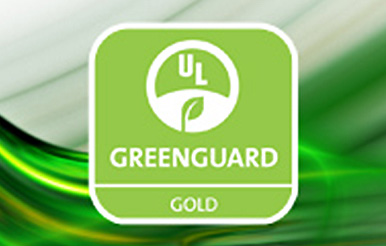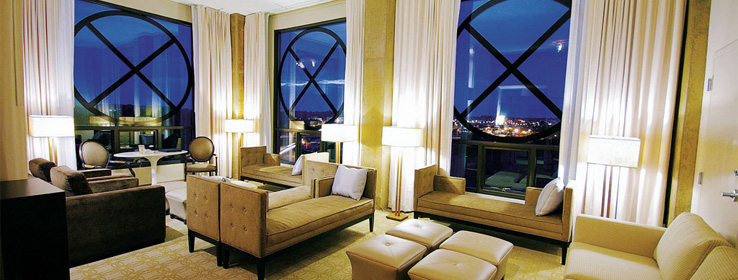America's first LEED Platinum hotel is eight floors of uncompromised luxury.
Being responsible carries with it mental baggage, and Louis Vuitton it's not. Hard-wired into our belief system is the notion that, if something's good for us or for the environment, we'll sacrifice comfort, style or convenience. Not surprisingly, boutique hoteliers have largely limited their green initiatives to elective daily laundering of linens.
But the Proximity Hotel in Greensboro, N.C., puts an elegant end to the perception that going green detracts from the guest experience. Proximity and its Print Works Bistro are the nation's first hotel and restaurant to earn top certification – Platinum – from the U.S. Green Building Council's Leadership in Energy and Environmental Design (LEED).
"When we started the design process four years ago, I never would have believed that we could use 39 percent less energy and 33 percent less water without one iota of compromise in comfort or luxury and with minimal additional construction costs," says Dennis Quaintance, chief executive officer and chief design officer of Quaintance-Weaver Restaurants and Hotels, Proximity's parent company. "It's not easy, but it's not hard."
The hotel is new construction but with an adaptive-reuse aesthetic that echoes a 1930s textile mill. One hundred solar panels, covering 4,000 square feet of rooftop, are used to heat shower and dishwasher water. Water conservation, too, is paramount. Low-flow showerheads, toilets and faucet spigots put the hotel on track to use 2 million fewer gallons of water its first year, a $13,000 savings that exceeds its additional $7,000 in construction costs.
"We all took home showerheads to test during construction," says Angie Kenny, Quaintance-Weaver director of design and special projects. "We didn't want guests saying, 'The hotel's saving lots of water, but this shower really stinks.'"
Insulating guests from any glimmer of deprivation was one challenge; visually warming up eight floors of pre-cast concrete, metal frames and plasterboard, using low-VOC (volatile organic compounds) paints and stains, was another.
"We wanted to soften up the architectural bones of the building," says Kenny. "It's a concrete skin on the outside, while the inside has exposed concrete, pipes in the ceilings of the corridors – a very industrial feel. Designers love the look of raw, exposed concrete, but to most people it appears cold, like a driveway or outdoor landscape wall."
Finishing the concrete in a rusty tobacco color with an aged patina set the tone for a 15-color palette, created by designer Bradshaw Ornell, characterized by deep browns, taupes, blacks, bronzes and mossy greens, the majority custom-mixed using Sherwin-Williams Harmony® no-VOC interior latex or Sherwin-Williams waterborne acrylic industrial coating Bond-Plex® for metal surfaces.
The hotel's abundant natural light offered little forgiveness for finishes. Guest-room windows measure 7 feet 4 inches square, and 97 percent of the hotel's regularly occupied spaces boast direct sight lines to the outdoors – a luxurious visual reminder that doing the right thing can be baggage-free.
Stylish sourcing
The Proximity Hotel's eco-friendly intentions are understated, with elements that resonate first as architectural and artistic statements in their own right:
Guest-room shelving units, significant to the rooms' architecture, are walnut veneer over a substrate of SkyBlend, a particleboard made from 100 percent post-industrial recycled wood pulp with no added formaldehyde.
The 25-foot bar in the hotel's Print Works Bistro is constructed of salvaged, solid walnut trees felled by storm or sickness.
Artwork includes 500 original charcoal-on-canvas pieces (in lobby and guestrooms) by local artist Chip Holton. Art acquisition involved no packaging or shipping since Holton's studio was a half-mile from the hotel. Ninety percent of the furniture was also sourced locally.










